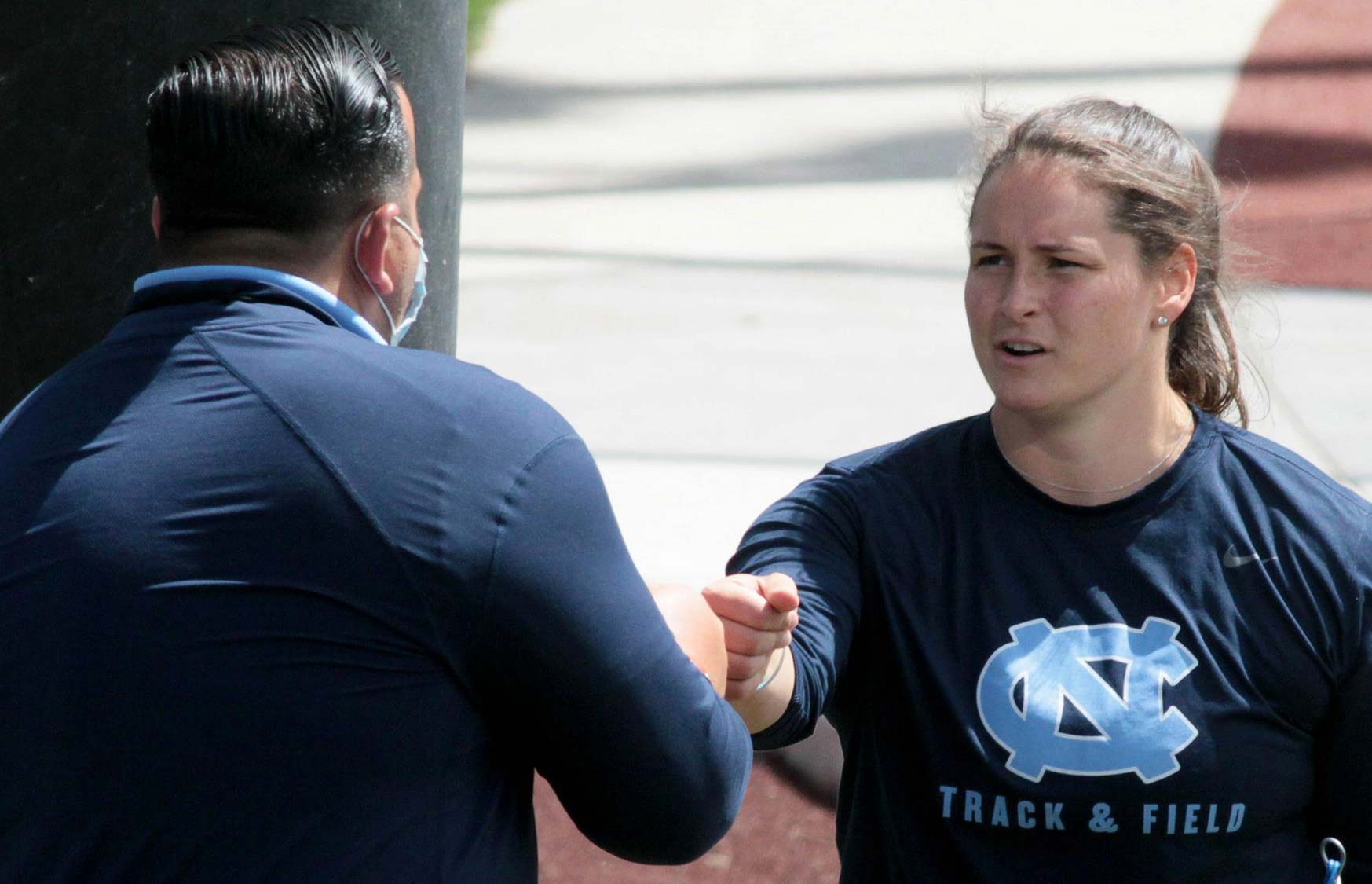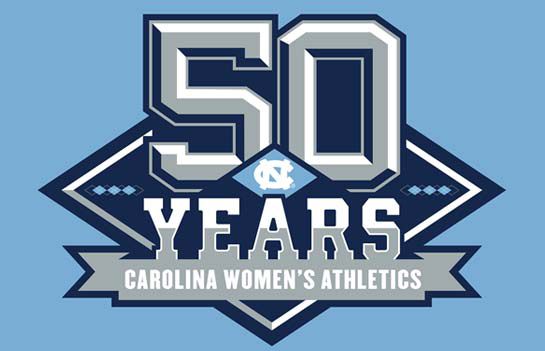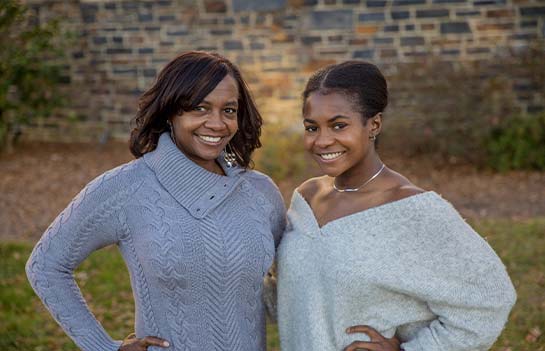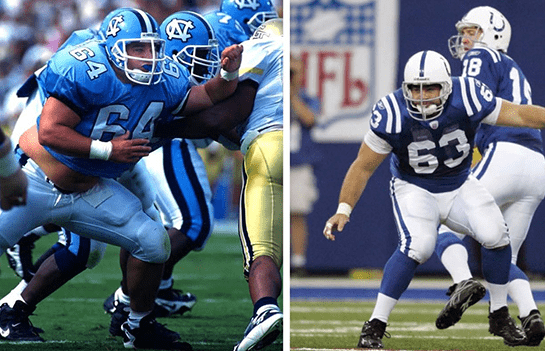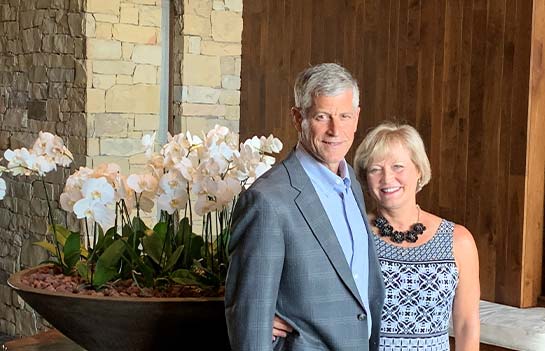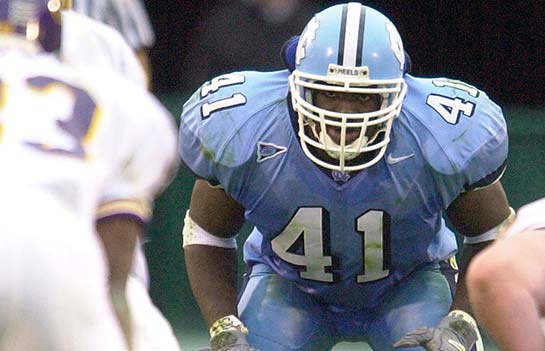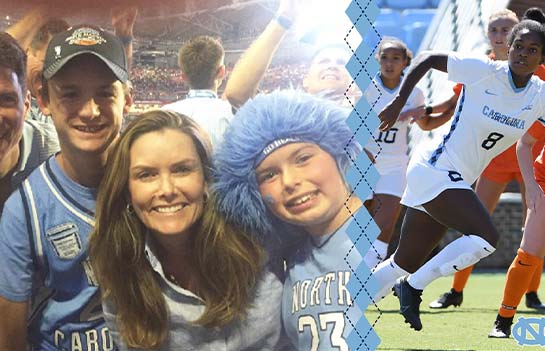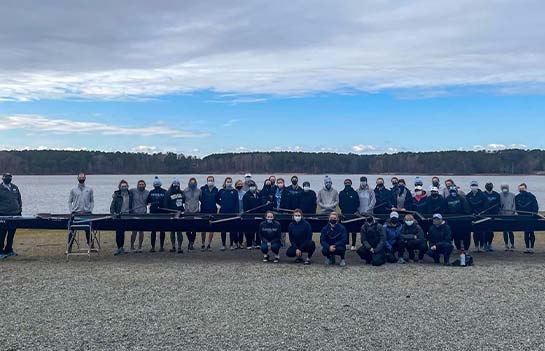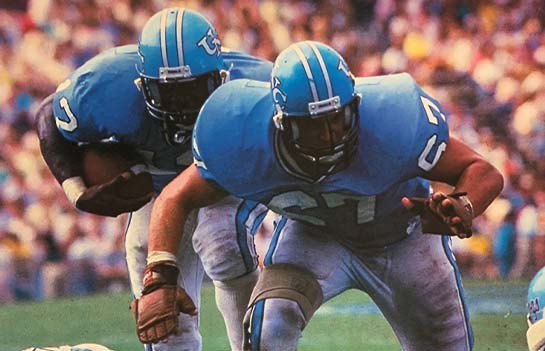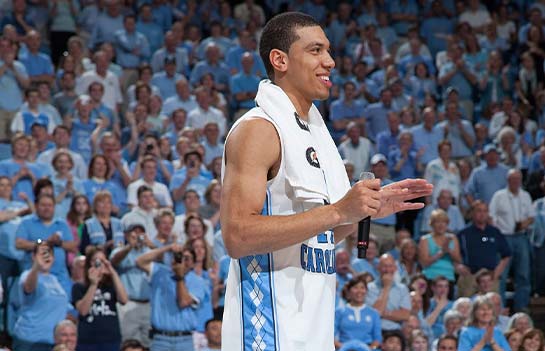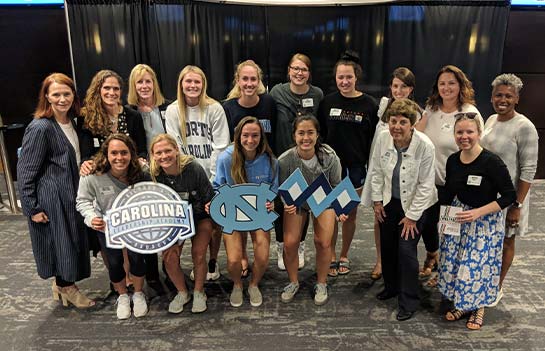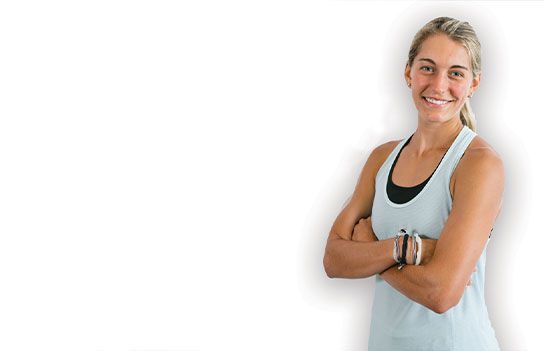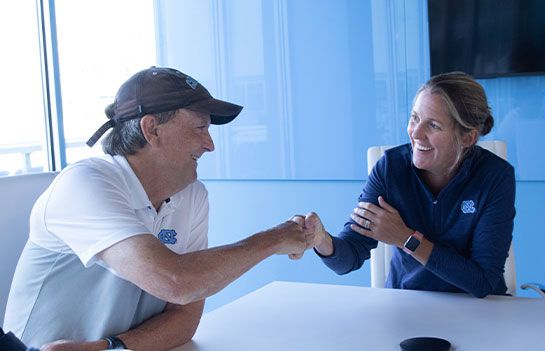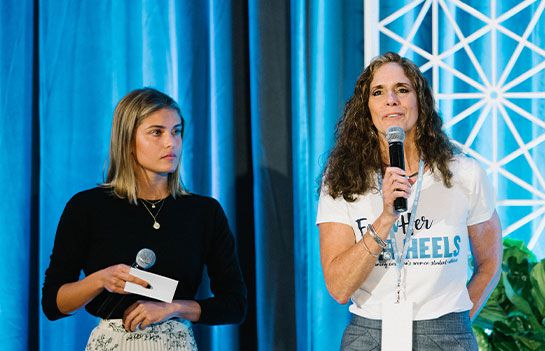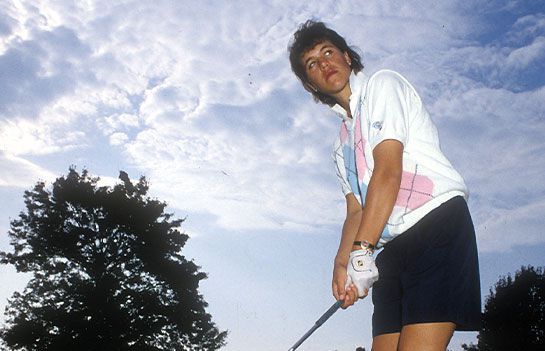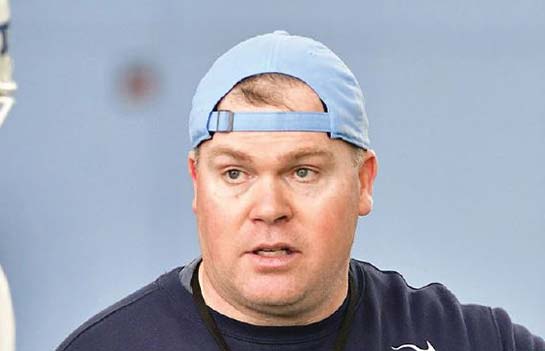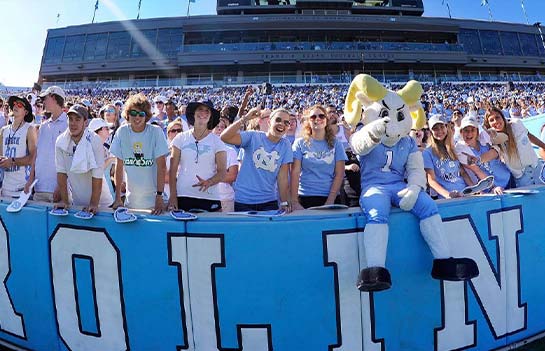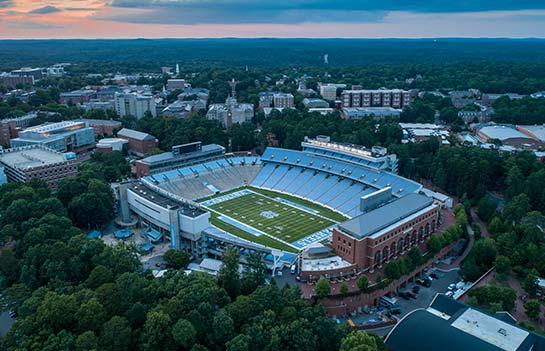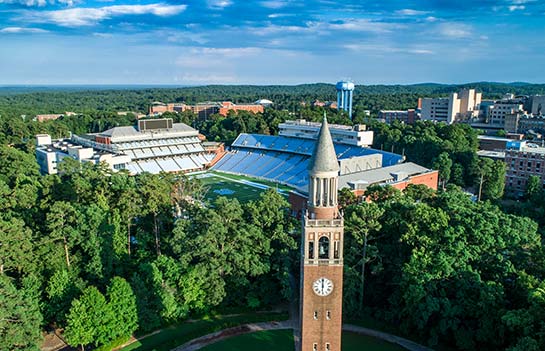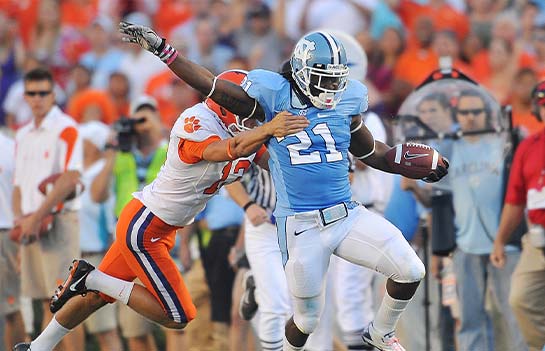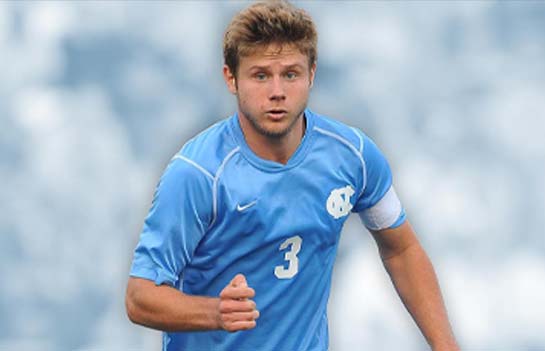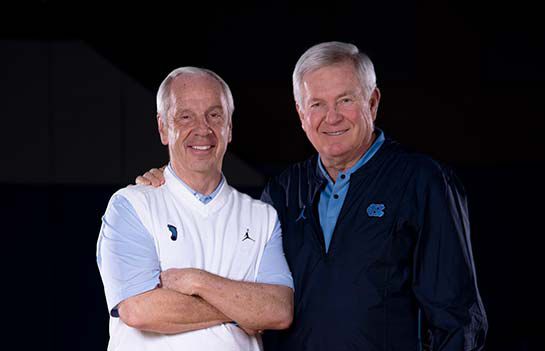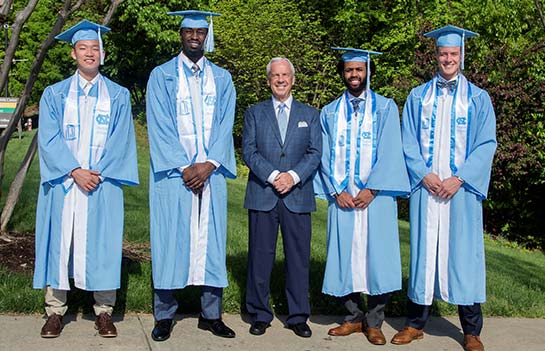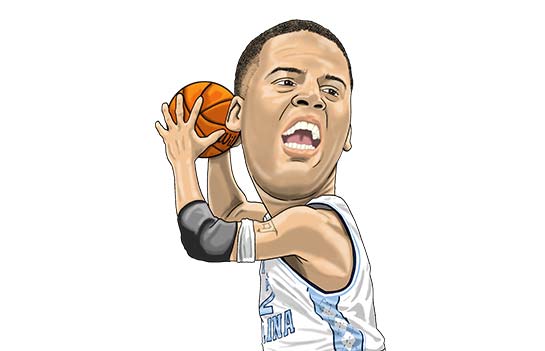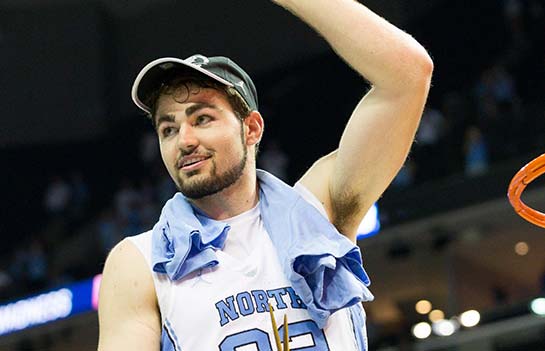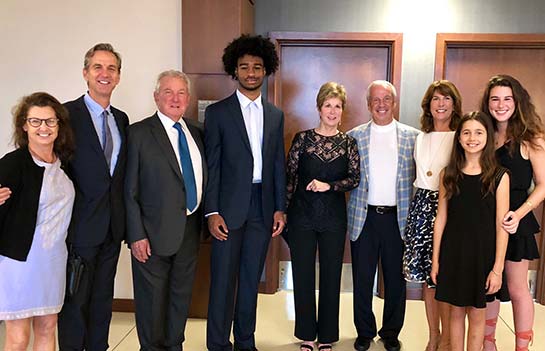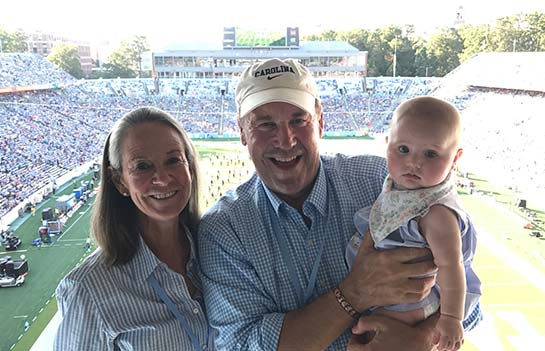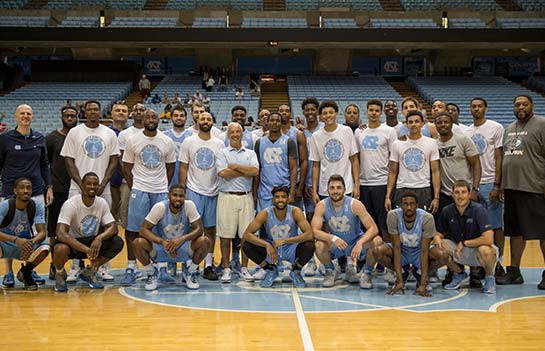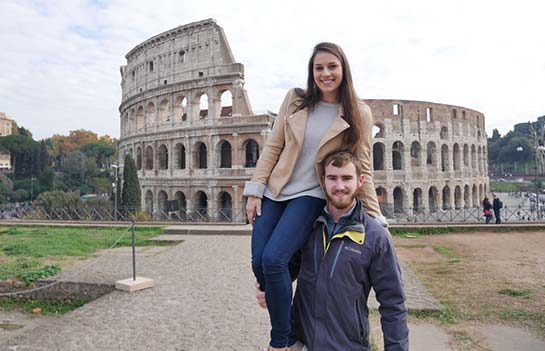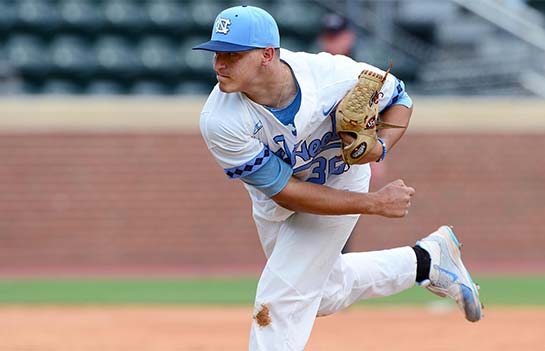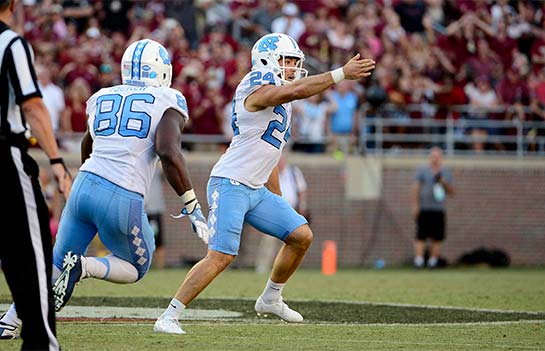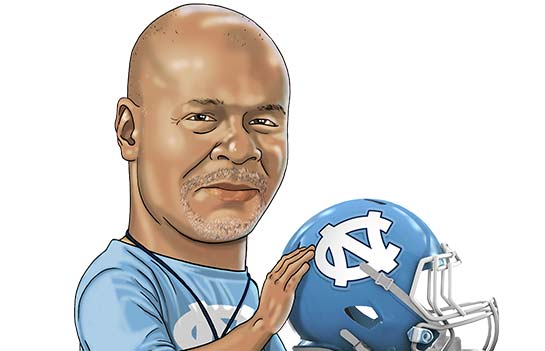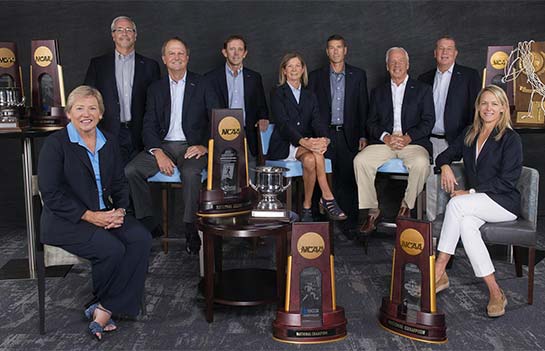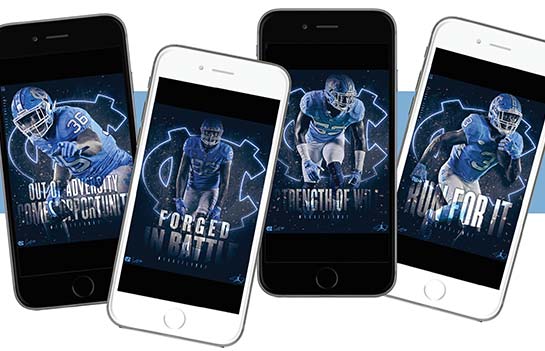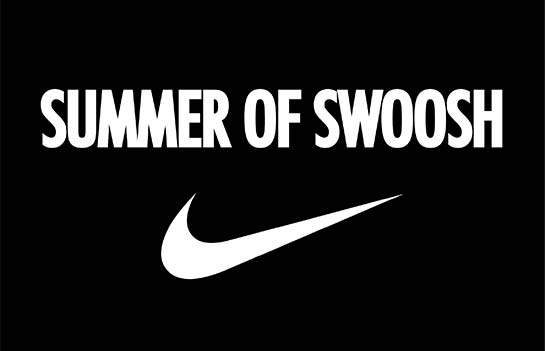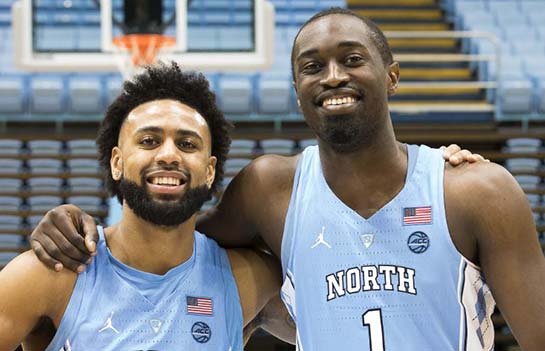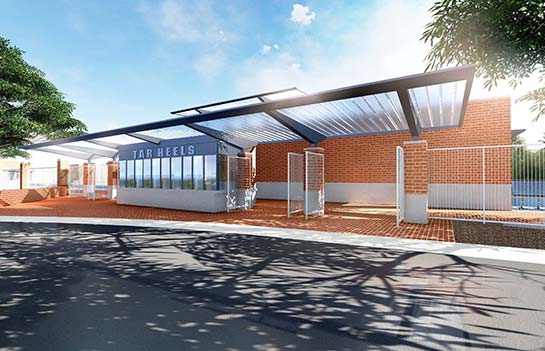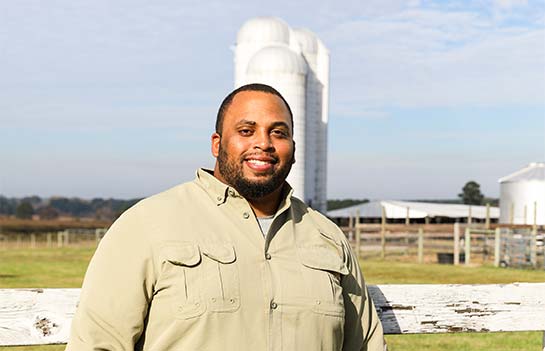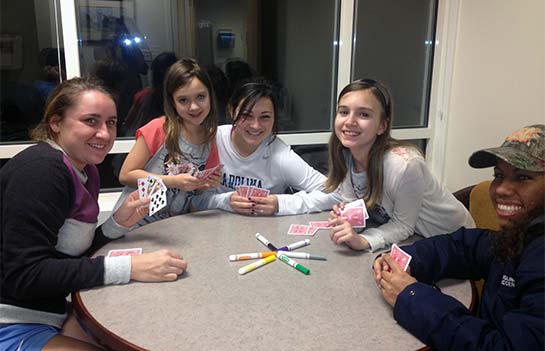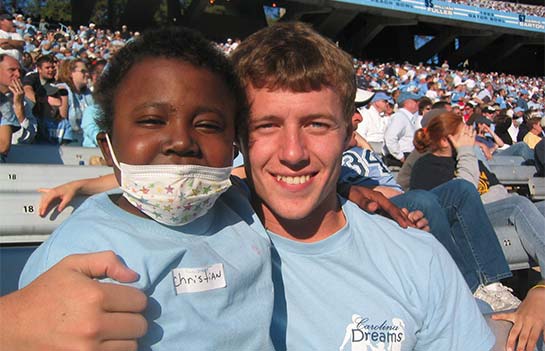Harris Barton – All In On Carolina
By: Lee Pace
Eleven times during the 1986 Carolina football season, the Tar Heels checked into a hotel on Fridays – their usual spot in Research Triangle Park for home games and road trips to Kansas, Florida State, Wake Forest, LSU and Clemson. Among the room assignments made by the coaching staff was putting the Tar Heels’ senior left tackle, Harris Barton, with the red-shirt freshman center, Pat Crowley.
“I think they thought he would be a calming influence, help keep me settled,” Crowley remembers.
Instead, it was Crowley who ate a bedtime snack on Friday night before the opener against The Citadel and promptly fell asleep, only to be roused in the middle of the night by his roommate.
“Harris had arranged some of the chairs and was in his underwear practicing his footwork,” Crowley says. “I said, ‘Man, what are you doing?’ He said, ‘Just working on my pass sets.’ I told him, ‘That’s nuts, get some sleep.’”
Crowley chuckles at the memory. “It was like that every week. Harris was intense.”
He turns serious and tells another anecdote from that 1986 season, the one where Barton was named first-team All-ACC and All-America and All-ACC Academic. Barton told Crowley there were three elements to college life – football, classwork and social life.
“Harris said, ‘If you do all three, you’ll be average in all of them,’” Crowley says. “’If you pick two, you can be great. That’s why you don’t see me out on Friday and Saturday nights.’
“It was pretty good advice.”
Barton used that athleticism, brains and focus to cap off an outstanding career as a Tar Heel, was picked in the first round of the NFL Draft and spent more than a dozen years starting for the San Francisco 49ers and winning three Super Bowls. He transitioned seamlessly into the world of finance and venture capital on the West Coast, where he’s remained and now runs H. Barton Asset Management, an “angel investment firm” that provides capital for start-ups and small businesses.
And now Barton’s mid-1980s Carolina career has come back to the fore with his being named to the 2021 class of the National Football Foundation College Hall of Fame. In early January he took a phone call from NFF Foundation Chairman Archie Manning saying he’d been elected to that august body and soon after received a commemorative plaque denoting the award.
“The plaque says something to the effect that since 1869, there have been 5.1 million people play or coach college football and fewer than 1,300 are in the Hall of Fame,” Barton says. “You start thinking about that and it’s just a joy. It’s a humbling experience and I still haven’t gotten my arms quite around it.”
Barton grew up in Atlanta, played football throughout his boyhood and as a senior in high school attracted considerable recruiting interest. Barton’s father advised him to look not just at the football program but the value of the degree as well. He also told him he couldn’t stay in-state because “you’ll never leave home” but he could not go to California because “you’ll never come home.” After taking multiple visits that included Clemson, Wisconsin and Florida State, he picked Carolina.
“My guidance counselor said no one gets into North Carolina from out of state, that if you’re given that opportunity, jump on it,” Barton says. “I figured I could play four years of football, get my education and move back to Atlanta and work for Coca-Cola or Morgan Stanley or Georgia Pacific. Carolina had a great educational program and also had really good football at the time, so it was a match made in heaven. I had no idea I would play pro football. None.”
Barton was recruited to play the defensive line, but the first day on campus in August 1982, offensive line coach John Matsko said, “You’re a center.” And that was that. Barton spent his freshman year battling nose guard William Fuller, himself later named to the Hall of Fame, every day in practice and then moved into the starting role in 1983. That offensive line featured future pros Brian Blados and Joe Conwell at the two tackle positions, and the Tar Heels were 7-0 and ranked No. 3 in the nation before losing on the road at Maryland. Barton was moved to left tackle midway through the 1984 season because of an injury to Pat Sheehan and stayed there the rest of the way.
Matsko left Carolina after Barton’s sophomore season, but they have stayed in touch over the years, and Matsko’s been an NFL offensive line coach since 1992.
“Harris was a dominating center,” says Matsko, the O-line coach of the Washington Football Team. “He was so quick and had such a low center of gravity. He took a lot of pride in putting defensive tackles and linebackers on their backs. He could reach block a guy lined up on the tackle, he was so quick and explosive. And he could pull on a screen and run guys over.
“He’s smart and knew what everyone on the line was supposed to do. And he was tough. For one spring scrimmage, we were down to one center and he took 80 snaps without a break. He had it all. That’s why he’s in the Hall of Fame.”
The Tar Heel program under Coach Dick Crum peaked during Barton’s early years at Carolina, as that Maryland loss in late October 1983 was the beginning of a three-game losing skid, and the year ended on a sour note with Carolina being hammered by FSU in the Peach Bowl. The 1984-85 teams won half their games and Barton’s senior year was a 7-4-1 campaign. He graduated with a degree in business administration, compiled a 3.1 GPA and made the Dean’s List twice.
“We had competitive teams, although we weren’t the best in the conference nor did we win the conference championship,” he says. “But we had a lot of great guys and great players who went on to solid careers in the pros.”
Barton ran a 4.79 in the 40-yard dash in the NFL Draft Combine and started attracting a lot of attention from scouts during the spring of 1987. He held a draft party at Martini’s, an Italian restaurant on West Main Street in Carrboro, and remembers taking a call from Bill Walsh saying he would be the 49ers first-round pick, the 22nd pick overall.
“It was way fun, and I got on the plane the next day to fly out to San Francisco,” he says. “When I got there, I picked up a pay phone and called my dad and said, ‘You know what, Dad? You were right, I’m never coming home. It was San Francisco with a great team, great weather, a fantastic place to be. And I’m still here.”
Barton started as a rookie and was runner-up in Rookie of the Year voting in 1987.
“I remember the first day I got into the huddle,” he says. “You look around the huddle and there’s Joe Montana and Roger Craig and Jerry Rice. Here is a team that has won two Super Bowls already and now you’re coming in and you’re trying to replace some of the aging offensive linemen and you’re a first-round draft pick – it was so incredible to be on such a quality team.”
He started 134 of 138 games through retirement after the 1998 season and collected Super Bowl rings after the 1988, 1989 and 1994 seasons.
“We were always at base camp to make the kind of effort to topple Everest,” Barton says. “Every year we would put ourselves in a position to try and win the championship. There was only one year in that 13 where we did not go to the playoffs.”
That balance between brawn and brains Barton was so well-known for at Carolina manifested itself in San Francisco as well. The 49ers played and practiced in the heart of the Silicon Valley, and Barton reached out to high profile technology CEOs like Jerry Yang of Yahoo, Scott McNeely of Sun Microsystems, Andy Grove of Intel and John Chambers of Cisco Systems and asked if they had advice on how an NFL veteran could start planning his transition from the field to the board room. That initiative led to some friendships and a lot of good guidance.
“The consensus from those guys was that everything now is venture-backed, and if you can get yourself assimilated with some of the venture capital firms, that would be quite interesting,” Barton says. “And that’s how I got into the venture capital industry.”
Barton – who spoke to Rams Club scholarship donors on March 24 about his experience and the impact Carolina has had on his life –has kept a close eye on the Tar Heel athletic programs as an alumnus and a Rams Club member. In the last two years, that connection has deepened as two of his children now have their own connections to the athletics program. His daughter Anna is a sophomore on the Tar Heel lacrosse team and son Paul, 6-foot-5, 205 pounds, is a high school senior who’ll be playing lacrosse next year for the Tar Heels. He brought Anna to Chapel Hill last August and visited football camp and addressed Mack Brown’s team.
“I am so impressed with the magic Coach Brown has worked,” he says. “I was blown away with the facilities and the new locker room and the commitment the athletic department is making to having a great football program.
“I’m thrilled at the direction everything is going and am so proud of my University. I’m happy for my time there and that my kids are able to enjoy it now. I’m so glad that I can be a part of it as an alum and a parent, and that I can support the program through The Rams Club. I’m all in on Carolina.”
More Stories
The impact of giving comes through in wonderful stories about Carolina student-athletes and coaches, as well as the donors who make their opportunities possible. Learn more about the life-changing impact you can have on a fellow Tar Heel through one of the features included here:
